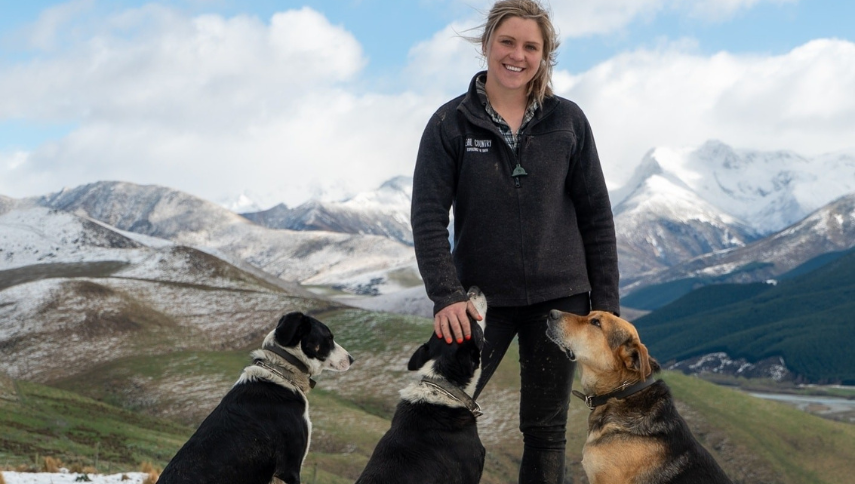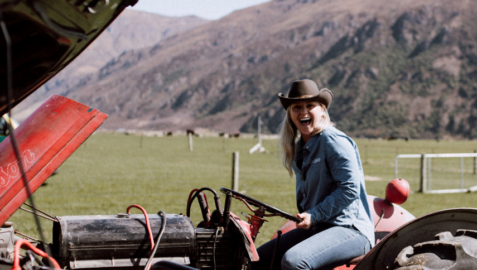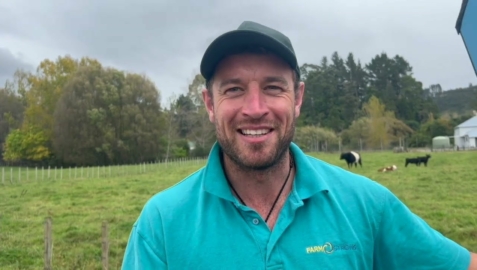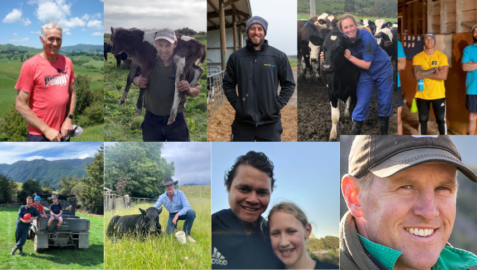
Big Picture Thinking
Module Overview
Laura Koot runs an agritourism business and is a driving force behind the Fairlight Foundation which trains women farmers. She’s also raising a family. Farmstrong asked her how she juggles all these responsibilities and keeps well.
Tell us a bit about your background.
I grew up on a sheep and deer farm, completed business qualifications and then worked in corporate roles here and overseas. When I started working, I was competent professionally and academically but, like many young people, I lacked confidence.
You had a successful corporate career though, didn’t you?
Yes, I was a suited and booted accounts manager for a cyber analytics firm, living in the city. I was working to a high standard for my employers and getting promoted. Everything looked fine to the outside world. But after hours my personal life was a shambles.
What was happening behind the scenes?
I’d been bullied at school and had bad relationships. People saw me as an extrovert, but I was actually a very under-confident young woman. I got into a really negative, downhill spiral. For years I battled a binging and purging disorder. That was my way of dealing with the stress and anxiety I felt.
What was your turning point?
I was 29, sat down one day and drew a picture of what I wanted my life to look like – it was me standing on the steps of a house with a dog at my feet looking out on a paddock with a horse and a four wheel drive surrounded by mountains. I called it ‘Laura’s life in five years.
It became very obvious that if I wanted that life something had to change. Three months later I’d quit my job and started a whole new life running an agritourism business to showcase rural New Zealand.
How did you find the confidence to do that?
It wasn’t confidence that drove me, it was the fear of my life being the same in ten years’ time if I did nothing!
Was there a tipping point though?
Yes, I’d also started volunteering at a horse rescue farm in the weekends and discovered I got as real buzz out of helping other people. That’s what triggered the change. I started feeling better about myself because I was helping others. I wanted more of that feeling and that helped break the cycle. I decided I had to do something that I felt passionate about rather than just a fancy job title with lots of money.
How did that work out?
Doing things outside my comfort zone soon taught me that I was capable of a lot more than I thought. I also discovered that once you’ve built up your confidence you are in a much better position to handle whatever life throws your way.
You had some big challenges during Covid didn’t you?
Yes, when Covid came along it wiped out the business. I lost six months’ worth of bookings in a day. It was dead overnight.
That’s a huge setback. How did you handle that?
It was interesting. Instead of just fretting about the bills and drowning my sorrows like I would’ve in the old days, I headed towards a new opportunity and helped set up a women-only farm training programme.
That’s a bold move at a tricky time. How did you find the confidence to do that? A lot of people have good ideas but never progress them.
It was something my Dad said actually. He’s been farming for 50 years and said one day, ‘Laura, In ten years’ time this will all just be a blip on your balance sheet.’
That really encouraged me to think in terms of the big picture again. He was right. You have to think long term in farming and focus on the things you that can control, even when life is tough. Embrace uncertainty rather than focus on the pitfalls of the situation you’re in.
You now have these multiple roles – entrepreneur, mentor, mother – how do you juggle all that and keep well?
Like everyone, I’m a work in progress [laughs]! I’ll be honest, I did not have the balance right pre-children. Having my daughter has forced me to be much clearer about my priorities.
So what’s your approach now?
Well, I’m a perfectionist by trait – I don’t do anything by halves – but when I’m really under the pump I’ve learnt to accept that sometimes good is good enough. That’s my mantra now. I can’t be a 100% perfect mother, wife, business owner, executive director, podcast host every single day. As long as you’re doing the best that you can, sometimes that has to be good enough. Adopting that mindset has taken a lot of pressure off me.
What do you do to recharge your batteries?
Well, some days are farm days, some days are family days and some days are personal days, because I know I need that balance. I just love being alone on farm or out hunting. When I’m with my horses and dogs that’s my chance to recharge. That time on my own is really important to me.
Our research shows that a lot of women in farming – around half – struggle to find that ‘me time’. Any tips?
I think my main insight is that on a farm you have to take responsibility for looking after yourself, because the external pressures never change. The to-do list never gets any smaller, so if you try and tick everything off, you’ll never be able to prioritise time for yourself and family. It’s about valuing and respecting yourself.
You recently joined the Farmstrong supporters’ network. What motivated you to get involved?
I believe that if you don’t have your ‘top two inches’ sorted, you are limiting yourself personally and professionally.
The old approach of ‘let’s just keep talking about it’ doesn’t work for a lot of people. It didn’t work for me. Farmers are pragmatic people and Farmstrong is providing practical tools and resources that are helping me to help others.
What’s your go-to in the Farmstrong toolkit?
I actively practice gratitude, which is one of the 5 Ways to Wellbeing. I actually write down what I’m grateful for because it highlights how much you have, rather than what you feel you don’t have. If you’re having a tough week, it just puts everything into perspective.
Do you think these ideas are catching on? Farmers are such busy people.
I think the progress in this space over the last ten years has been phenomenal, but you can’t change a whole industry from the top down. If each of us can just have an impact on one or two others, you’ll soon get a ripple effect. I think that’s how you achieve substantial, long-standing change.
So if sharing my story can help even one other person out there who’s struggling, I think that’s incredibly powerful.
Farmstrong is a nationwide, rural wellbeing programme that helps farmers and growers to deal with the ups and downs of farming. To find out what works for you and lock it in, visit www.farmstrong.co.nz



